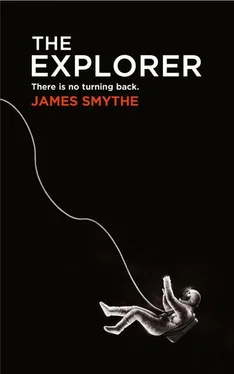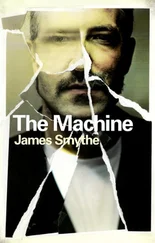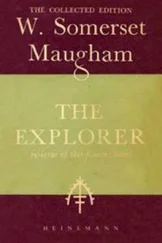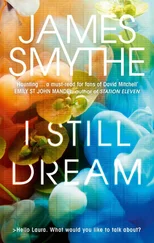The beeping starts again. It’s been hours, days maybe, and I’ve barely thought about it. I’ve been sleeping. Being in constant total darkness makes you far more tired than you realize. I wonder how they do it in the Arctic, in Iceland. And we have clocks here, but they’re hidden, on computers, so you forget when day starts and night ends, or vice versa. It’s easy to sleep when you ought not. I might be on a tenhour cycle of days now, for all I know.
The beeping cuts through the hum of engines, and the light, even as tiny as it is, can be seen all the way across the main room. The screen has that same message, that same chain of numbers, and, again, the search box on the Help software doesn’t offer anything. 39% fuel now; it seems to be going down faster than I predicted, and faster than I would like. Faster than it should, actually, and by some way. I try typing the numbers into the computer back at itself, like it’s a line of code, an instruction – maybe this is its way of giving me help, offering me a sort of sentient way to turn this thing around? – but nothing happens. I’m sure that the pilots would have known what to do with it. Arlen would have flicked a switch, one of the hundreds labelled with numbers and abbreviated codes, and that would have stopped it. Quinn would have tapped the screen, smiled at the number.
‘They’ve found us!’ he would have said. ‘All the way out here! And they’ve brought our favourite food and drink with them!’ And we’d have had a meal at our table with the gravity switched on, not worried about how much of the energy it would waste, and not worried about whether we’d make it home because we would already be there.
A few hours later the beeping finally stops. The ship is now on 38%.
It drops around a percentage point every few hours. I’ve taken to watching it properly. There’s a diagnostic control you can input that I read about in the Help files – I’ve read them all now, digital-cover to digital-cover – that shows you exact values, so you can watch the fuel tick down in millilitres, but that takes the fun away from it. This has become a game, seeing if I can predict when it will next click over. I can get it down to an art: the engines have a remarkably constant rate of consumption, and there’s no resistance out here to bog us down, slow us, change the maths. My first guess is three hours off; my third just twenty minutes. By 33% I nearly have it at a countdown.
This is the moment in the film where that word repeats – countdown, countdown, countdown – and we fade to the beginning of the mission, as we’re all being strapped into our stasis beds. We were only allowed to stay in them for two days – a number that didn’t rely so much on science as the few tests that had gone before (which we assumed were on monkeys, but didn’t ask) – because they were depriving us of oxygen, to keep us under, to keep us stable. We asked what could happen if something went wrong and we had too much or too little oxygen, and the doctors told us that we could get cramps, that sort of thing. As a journalist, you notice tells. It’s like gamblers: there’s a fine art to seeing when people are lying, when they’re holding aces. What you develop in my line is something else, though, a stage past that. It tells you when the giveaway signs are something you shouldn’t push. Leave it alone, it’ll be better that way. The doctors knew something, or suspected something, and we signed documents that agreed that they had no legal control over us; that we chose this trip, and the inherent risks therein. You don’t want to know. The launch itself was automated, and we were all asleep before we even heard the countdown voice over the loudspeaker (which I assume that they did, though I have no proof). Stasis is odd: it’s not cold, but you’re frozen. Really, you’re just asleep, but whatever drugs they give you shut down as much of your body as they can without causing any damage, and, as you sleep, they lower the temperature. When you come out you are soaking – the sci-fi films of the 1970s got that much right – but from your own sweat. But there’s no shivering, no hang-over, no feeling of sickness. You come out, you shower. (We have a pod in the back, in the changing room next to the airlock, that you climb into. You press on the ceiling – which stops you floating upwards – and the pod fills with soapy water, which is sucked out, and then fills with recycled water, which gets sucked out again. I haven’t used it in days. I keep forgetting.) We did the stasis because of the G-forces – the acceleration, Quinn explained to me as we were strapped in, was so great that we could all be damaged from the initial launch to break from the Earth’s atmosphere, and we were going to pass so close to the Moon that we would maintain the speed until we were clear of it, and we were going to be going so fast that there would be an atmospheric change, a drop in temperature that we couldn’t even hope to survive. Stasis kept us whole and kept us alive. We only needed to be there for a few days, but then, why not miss as much of the trip as possible? We woke up when we were well past the Moon, and we found Arlen, dealt with that, then we took turns in the shower, and then opened the vents for a few seconds to suck out all the water that was floating around. We were awake then, and we went about our business: checking the systems, checking we were all healthy, making notes, recording interviews, watching the Earth become a dot through the Bubble.
I’m halfway through a percentage-cycle. Dinner tonight is McRib pulled pork flavour bar, dessert a Cadbury’s chocolate cake bar. Later today I will open the cap on a bottle of water and watch it hang like a balloon in the air, and use a straw to try and suck it up as I float around in the chase.
I look at my beard in the mirror of one of the reflective silver wraps of a meal bar; it reflects me distortedly, like it isn’t really me. I haven’t yet questioned my sanity, though I probably should; but I can see this beard that has started growing, because I haven’t shaved, because I haven’t taken the care of myself that I probably should. I’m still exactly the same. I look at the crew, one by one, to see how they’re different. Arlen’s beard hasn’t grown; they say that it happens after you die, but I’ve frozen him. I’ve frozen them all. We never change, even out here.
27%, and an all-stop, hitting the big button in time with the tick of the fuel calculator. There’s six hours of backup life support charged in the batteries – but, again that’s based on a full complement of crew, so for me that’s well over a day, maybe even closer to two, two days of just being able to sit here, ebbing about on nothingness. I wonder if I’ll drift over that time? I log onto the computer, open my drive. This is where all my recordings of interviews are. There’s hours and hours of them, all broken down into categories: pre-launch nerves, childhood histories, moments of greatness, thoughts on the crew, thoughts on space, thoughts on each other, the interview process, how they want to be remembered, the problems with space, the problems with the craft, the concept of what it means to be a hero, the concept of what it means to be an explorer. I sort them chronologically and click on the first one. Emmy’s face fills the screen, fills the screens on the bulkheads further down the room, and her voice comes through the speaker in the ceiling, clear, perfect.
‘I started off working in a hospital – I did my training in Brisbane and Sydney, then I moved to UCL – and I worked in St Barnabas’ Hospital for the first three years, and then was recruited, I suppose.’ She laughs. ‘Recruited! That’s what they called it. And then there was three years of training before I was even asked if I wanted to go on a mission. We did Zero G triage tests. They have this shuttle that we went up in, hit the atmosphere, and we had to operate on it. Nothing real, only these dummies, but blood bags, so we could watch that stuff floating around. What happens if somebody, I don’t know, needs an amputation of something and we can’t get gravity stabilized? We might have to operate in Zero G, and we needed to know the intricacies of it, how to deal with it. There’s a lot more clamping involved.’
Читать дальше
Конец ознакомительного отрывка
Купить книгу












